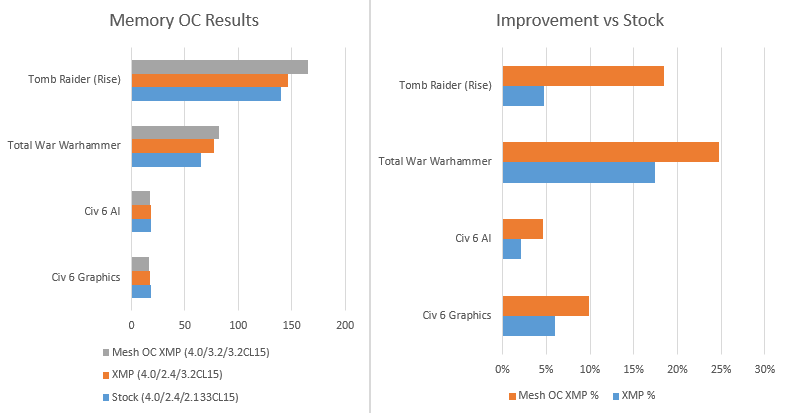goldstone77
Distinguished
The Skylake-X Mess Explored: Thermal Paste And Runaway Power
by Igor Wallossek July 10, 2017 at 6:00 AM
"In the wake of Skylake-X's introduction and disappointing results from our overclocking attempts, we put a lot of thought into the power and thermal issues plaguing Intel's highest-end desktop CPUs. These roadblocks boil down to a couple of salient points that we'd like to explore in as much depth as possible:
(1) Skylake-X at its stock settings can barely be cooled during normal operation. This is due to its power consumption being extremely high in some situations, and its thermal paste keeping waste heat from being dissipated effectively.
(2) There’s barely any room for enthusiasts to overclock. Also, many motherboards limit Skylake-X CPUs further due to poor design choices, such as insufficient VRM cooling. Those looking for high overclocks need not apply."
"Manual Overclocking & Conclusion
The Motherboard Manufacturers’ Duty
Ultimately, we’re looking at power consumption numbers similar to some high-end graphics cards when we start messing with Skylake-X. AMD’s FX-9590X doesn’t even come close to these results, if that means anything to you. This means motherboard manufacturers need to start spending money on better components and cooling solutions to take care of those components. Otherwise, long-term reliability will be hard to guarantee. Ultra-durable and military-class components don't have to be exclusive to top-end products; they can bolster mid-range platforms, too."
http://www.tomshardware.com/reviews/-intel-skylake-x-overclocking-thermal-issues,5117.html?utm_source=th-newsletter&utm_medium=email&utm_campaign=20170714-th
by Igor Wallossek July 10, 2017 at 6:00 AM
"In the wake of Skylake-X's introduction and disappointing results from our overclocking attempts, we put a lot of thought into the power and thermal issues plaguing Intel's highest-end desktop CPUs. These roadblocks boil down to a couple of salient points that we'd like to explore in as much depth as possible:
(1) Skylake-X at its stock settings can barely be cooled during normal operation. This is due to its power consumption being extremely high in some situations, and its thermal paste keeping waste heat from being dissipated effectively.
(2) There’s barely any room for enthusiasts to overclock. Also, many motherboards limit Skylake-X CPUs further due to poor design choices, such as insufficient VRM cooling. Those looking for high overclocks need not apply."
"Manual Overclocking & Conclusion
The Motherboard Manufacturers’ Duty
Ultimately, we’re looking at power consumption numbers similar to some high-end graphics cards when we start messing with Skylake-X. AMD’s FX-9590X doesn’t even come close to these results, if that means anything to you. This means motherboard manufacturers need to start spending money on better components and cooling solutions to take care of those components. Otherwise, long-term reliability will be hard to guarantee. Ultra-durable and military-class components don't have to be exclusive to top-end products; they can bolster mid-range platforms, too."
http://www.tomshardware.com/reviews/-intel-skylake-x-overclocking-thermal-issues,5117.html?utm_source=th-newsletter&utm_medium=email&utm_campaign=20170714-th















